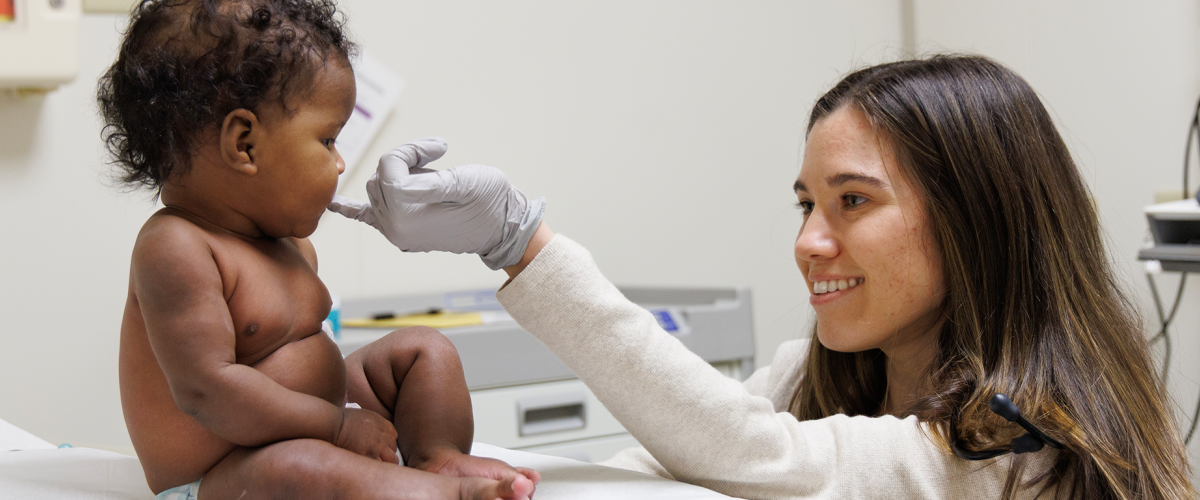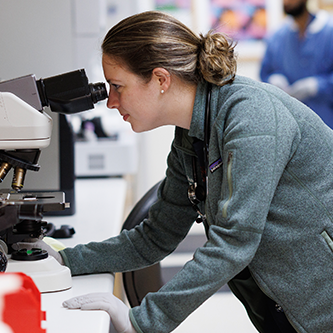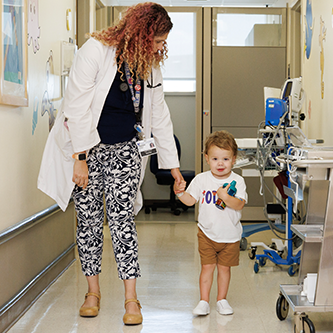
Our residency and fellowship programs are designed to provide outstanding education to prepare our trainees to excel as clinicians, teachers, researchers, and advocates within the field of pediatrics and beyond.
Engaged, Supportive Faculty

Our faculty are dedicated to their work and committed to helping trainees reach their full potential. Duke Pediatrics faculty have wide-ranging interests, and many are experts in their field. Their knowledge and passion play a crucial role for mentoring trainees and preparing them for their future careers. Meet our faculty.
Fast-paced Learning Environment

There is never a dull moment as a Duke Pediatrics trainee. Students, residents, and fellows encounter a wide range of health care situations, from complex health issues to routine care, that are part of a growing city and its surrounding communities. Training takes place in several locations, including Duke University Hospital, the Children’s Health Center, and Lincoln Community Health Center. This variety allows trainees to care for children with a wide range of diagnoses and backgrounds.
Research Focused on Children’s Health

Research is an integral part of the training at Duke Pediatrics. Trainees are encouraged to follow their passion and curiosity in their research projects. Our Duke Pediatric Research Scholars Program (DPRS) is an example of our commitment to research. This program identifies and trains the next generation of pediatric physician-scientists as leaders in developing and implementing innovative strategies to improve the health of children. Learn more about research in our department and at Duke.
Exceptional Training and Patient Care

At Duke Pediatrics, our work is centered around improving children’s lives today and in the future. As a top-ranked training program, we foster innovative clinical care, exceptional research productivity, and an outstanding training environment. Duke is also home to one of the nation’s best medical centers, and Duke Children’s is nationally ranked by U.S. News & World Report. Explore our Facts & Figures page.
A Prime Location to Work and Live

Duke is located in Durham, North Carolina, and just minutes away from Raleigh and Chapel Hill. The area attracts people of all ages and features many family-friendly neighborhoods. Whether you’re looking for intellectual curiosity, a new favorite restaurant, a fun evening out, or something else entirely, you’ll find it here.
Discover Duke in Durham & the Triangle.
Plus, see how Duke Pediatrics makes an impact in the community.
Watch Aerial Drone Footage of Duke’s Beautiful Campus
Photo credits: Discover Durham
Durham Central Park Playlist